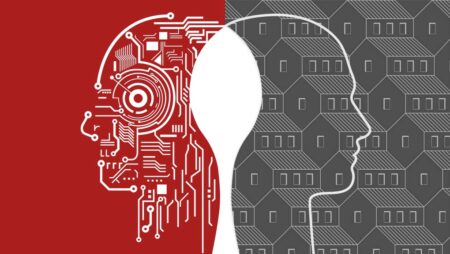Understanding the potential of AI in lifelong learning: A critical perspective
This project seeks to discover the potential of artificial intelligence to personalise informal learning opportunities for adults across the life course.
Huw’s interests and projects can be broadly described as digital sociology – the study of how society shapes technology and vice versa, with ongoing collaboration with Rebecca Eynon.
Huw is a co-convenor of the BSA’s Digital Sociology Study Group which seeks to provide a forum for sociologists who are using digital methods and critically examining digital technology’s impact on society. Because technology doesn’t exist outside of society, Huw is committed to helping to make the sociology of race, gender, and class central to the study of digital technology.
Davies, H. C., & Eynon, R. (2018). Is digital upskilling the next generation our ‘pipeline to prosperity’? New Media & Society: 1461444818783102 DOI: 10.1177/1461444818783102
Davies, H.C. (2018) Redefining Filter Bubbles as Socio-Technical Recursion. Sociological Research Online 23(2): 136078041876382 DOI: 10.1177/1360780418763824
Davies, H.C. (2017) Learning to Google: Understanding classed and gendered practices when young people use the Internet for research. New Media & Society 20(8): 146144481773232 DOI: 10.1177/1461444817732326
Davies, H. C., Eynon, R., & Wilkin, S. (2017). Neoliberal gremlins? How a scheme to help disadvantaged young people thrive online fell short of its ambitions. Information, Communication & Society, 20(6), 860–875.
Wilkin S, Davies H & Eynon R (2017) Addressing digital inequalities amongst young people: Conflicting discourses and complex outcomes. Oxford Review of Education, 43(3), 332-347.
Davies, H.C. (2014) Social media and personal relationships: online intimacies and networked friendship. Information, Communication & Society, 17(2), 543-568.
Davies H.C., & Eynon R. (2019) Reversing the data gaze in education. European Conference on Information Systems. Stockholm.
Davies H.C. (2019) Data as a commodity v data as tool for social justice
How are they co-existing? Data Justice Week. University of Edinburgh.
Davies H.C., & Eynon R. (2018) Alternative futures? Teenagers’ digital practices, social mobility and schooling. American Educational Researchers Association’s Annual Meeting. New York.
Davies H. C. & Nash V. (2018) What does its (un)ethical approach to children tell us about digital capitalism’s circuits of practice. In WebSci ’18: Proceedings of the 4th Annual ACM Web Science Conference. Amsterdam.
Davies H.C., & Eynon R. (2017) Levelling (the digital) playing field with The Home Access Scheme: a grounded account of the processes of neoliberalisation. The British Sociological Association’s Annual Conference. Manchester.
Davies H.C., & Eynon R. (2016) Levelling (the digital) playing field with The Home Access Scheme: a grounded account of the processes of neoliberalisation. The Association of Internet Researcher’s Annual Conference. Berlin.
Davies H.C., & Eynon R. (2016) Learning to Google: understanding classed and gendered practices when young people use the Internet for research. The British Sociological Association’s Annual Conference. Glasgow.
Davies H.C., (2015) Learning to Google: understanding classed and gendered practices when young people use the Internet for research. European Sociological Association’s Annual Conference, Prague.
Davies, H. C., Halford, S. J., & Gibbins, N. (2012). Digital Natives? Investigating young people’s critical skills in evaluating web based information. In WebSci ’12: Proceedings of the 4th Annual ACM Web Science Conference. Evanston, Illinois.
Davies, H.C., (2015) How do youth interpret misinformation online: operationalising Bourdieu’s Habitus in The Art of Application: Bourdieu, Habitus and Social Research, Palgrave.
Nash V., Davies, H.C., Mishkin, A. (2019). Digital Safety in the Era of Connected Cots and Talking Teddies for The Oak Foundation.
V. Lehdonvirta, A. Margaryan, H.C. Davies (2019). Skills formation and skills matching in online platform work: policies and practices for promoting crowdworkers’ continuous learning (CrowdLearn) for The European Centre of Vocational Training.
S. Bhullar, E. Helsper, G. Loudon, R. Linnington, S. Davies, and H.C. Davies (2014). Generation 2000: The Internet and Digital Media Habits of Year 9 Pupils (13 and 14 year olds) in Wales for the Children’s Commissioner for Wales.
2019 Data as a commodity v data as tool for social justice: how are they co-existing? Data Justice Week. University of Edinburgh
2019 Digital Anthropology, Digital Geography, and Digital Sociology: what are their affinities? Sage Publishing. London.
2018 Why do we research what young people are doing online?
BSA Presidential Event, House of Commons. London
2018 Isn’t it all about structure v agency? Or, thinking through the study of tech with (digital) sociology. University of Gothenburg.
2018 Trust us, we share your values: tentative methods to expose digital capitalism’s strategic use of agnotology. University of Salford.
2018 Democracy: a hackable socio-technical system? University of Swansea.
2017 Radical Digital Citizenship: what is Digital Sociology’s contribution?University of Edinburgh.
2017 The (im)possibility of capturing young people’s socio-technical ecosystems. Brunel University of London.
2017 What We Don’t Want to Know About Teenagers Online. EdTech Winter School. Uruguay.
2017 Diversity v compliance: how do we want young people to use digital technology? Children, Youth and Online Media Summit, Cardiff.
This project seeks to discover the potential of artificial intelligence to personalise informal learning opportunities for adults across the life course.

Despite the rapid growth of online platform labour, little is known about how crowdworkers acquire and develop their skills. This project seeks to address this important gap in our knowledge.

This project will map the range of non-ICT companies engaging digitally with children and identify areas where their actions might affect a child’s exposure to online risks such as data theft, adverse online experiences or sexual exploitation.
26 November 2018
4 October 2018

13 June 2018

10 May 2017